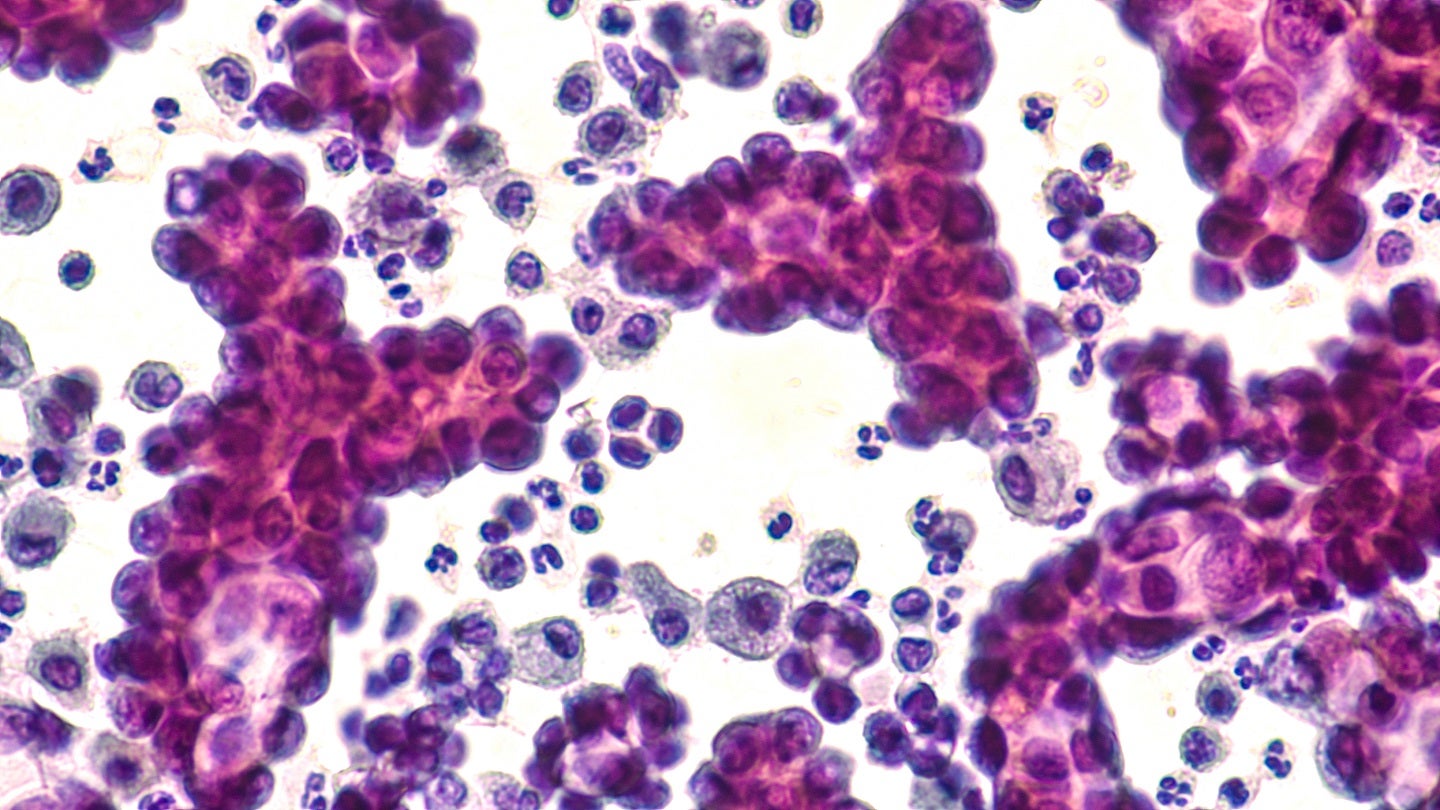
AstraZeneca has reported positive results from the Phase III AEGEAN trial of Imfinzi (durvalumab) as perioperative treatment for patients with resectable early-stage (IIA-IIIB) non-small cell lung cancer (NSCLC).
In an interim examination of event-free survival (EFS), patients who received the Imfinzi-based regimen before and after surgery demonstrated a reduction of 32% in the risk of recurrence, progression events or death against chemotherapy alone.

Discover B2B Marketing That Performs
Combine business intelligence and editorial excellence to reach engaged professionals across 36 leading media platforms.
In a final evaluation of pathologic complete response (pCR), treatment with Imfinzi in combination with neoadjuvant chemotherapy before surgery led to a pCR rate of 17.2% against 4.3% for patients receiving neoadjuvant chemotherapy alone.
AstraZeneca will continue to conduct the AEGEAN trial as per the plan to investigate the trial’s major secondary endpoints including disease-free survival (DFS) and overall survival (OS).
The randomised, double-blind, multi-centre, placebo-controlled study has been designed to evaluate Imfinzi, a human monoclonal antibody that binds to the PD-L1 protein and blocks the communication of PD-L1 with the PD-1 and CD80 proteins.
Its primary endpoints included pCR, defined as no viable tumour in the resection specimen following neoadjuvant therapy, as well as EFS, defined as the time from randomisation to events such as tumour recurrence, progression precluding definitive surgery or death.

US Tariffs are shifting - will you react or anticipate?
Don’t let policy changes catch you off guard. Stay proactive with real-time data and expert analysis.
By GlobalDataMajor secondary endpoints of the trial were chief pathologic response, DFS, OS, safety along with quality of life.
AstraZeneca Oncology R&D executive vice-president Susan Galbraith said: “The AEGEAN trial shows this novel Imfinzi-based regimen meaningfully improved outcomes in resectable lung cancer, further validating the importance of moving lung cancer diagnosis and treatment to earlier stages of the disease where patients have the highest potential for cure.
“We look forward to discussing these data with global regulatory authorities with the goal of providing this important new treatment option to patients.”





